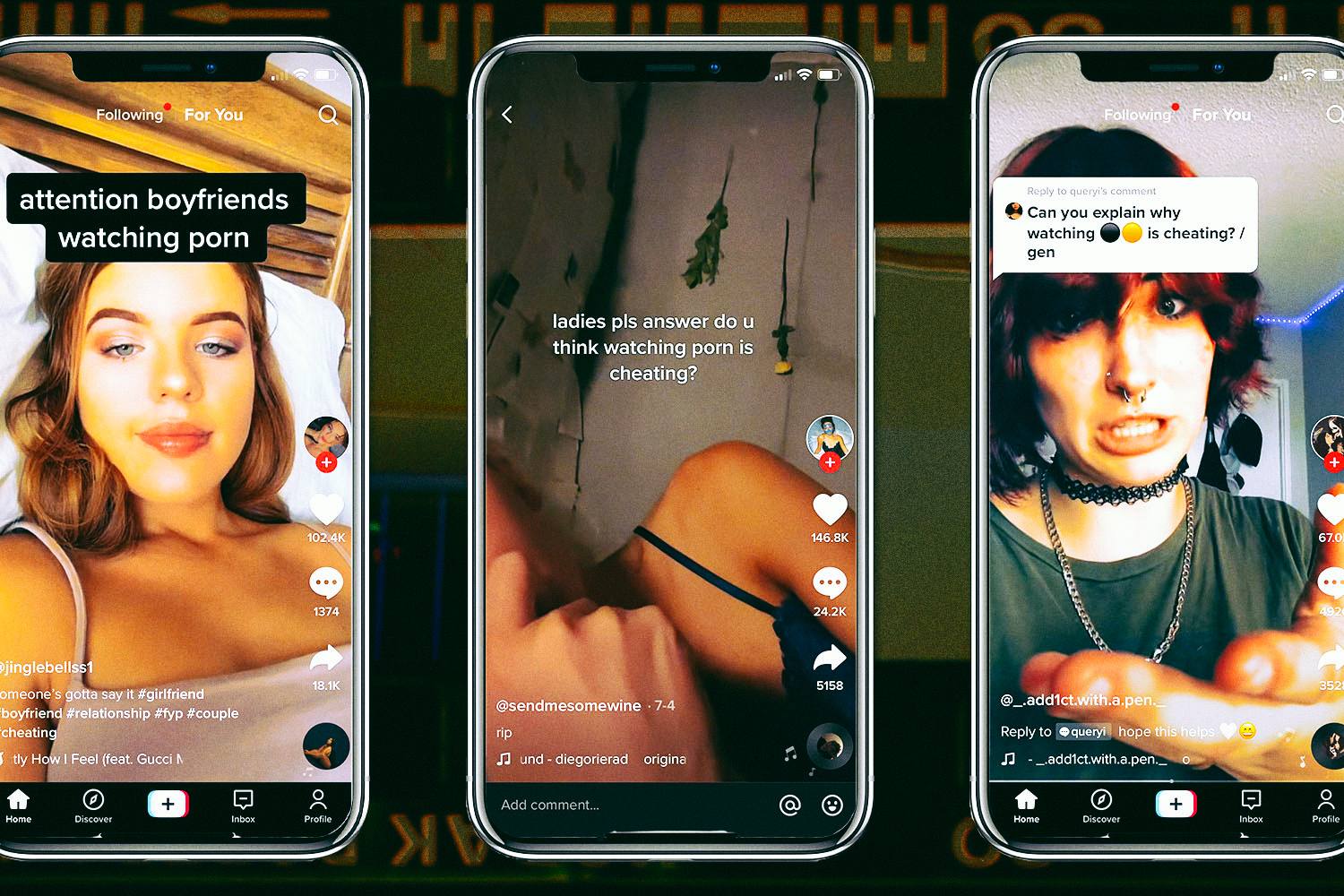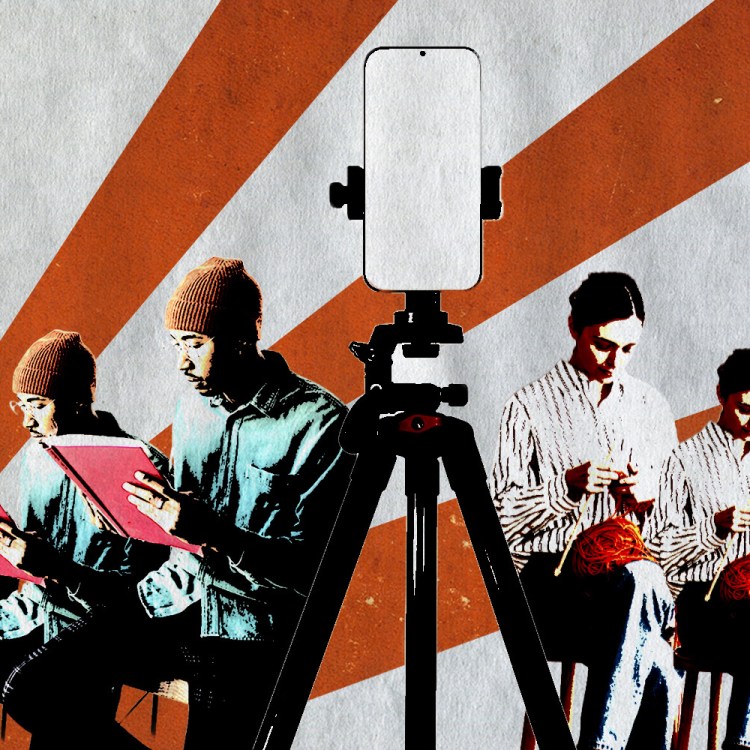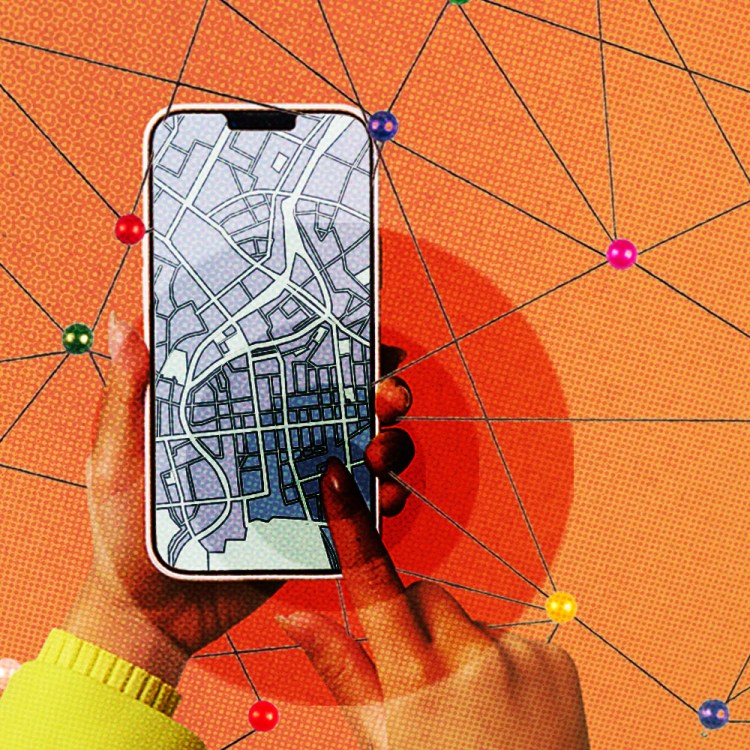By now you’ve likely heard the tale of West Elm Caleb. A 25-year-old, 6’4” designer for the high-end furniture company who got outed by TikTok for ghosting girls around New York City. Basically, he was guilty of typical fuckboi behavior: matching with women on dating apps, showering them with compliments and Spotify playlists, then disappearing on them, never to be heard again (while, allegedly, sending one unsolicited dick pic in the process). Until the video-sharing app connected the ghostees — women who discovered they had all been dating the same man after sharing their similar experiences on TikTok in late January of this year.
What started as a funny coincidence, reminiscent of the plot of the 2006 film John Tucker Must Die, quickly escalated into a TikTok harassment campaign where internet users and even some media outlets doxxed West Elm Caleb and tried to get him fired from his job. It was yet another lesson in how we need to leave random strangers that accidentally go viral alone, but the mania viral event highlighted another problem persistent on the internet right now.
It’s known as pathologizing, and it has reached new heights on TikTok, where nearly every show of bad or unlikeable behavior, specifically when it comes to dating and relationships, is classified as abuse. In the case of West Elm Caleb, TikTok users branded him a “narcissist” and a “pathological liar,” and accused him of “gaslighting” women into thinking that he liked them. One comment even equated ghosting with emotional abuse. It’s why some people tried to get him fired, they legitimately believed he was an abuser.
“Love bombing” is another psychology buzzword being tossed around at the moment. A term that originated with cult leaders during the ‘70s has now catapulted into the mainstream thanks to West Elm Caleb and Kanye West (as you might be able to gauge from all the “What is love bombing?” articles written in the last few weeks). What gaslighting was to 2016, love bombing is to 2022.
To save you that Google search, Dr. Amelia Kelley, co-author of What I Wish I Knew: Surviving and Thriving After an Abusive Relationship, explains that love bombing is any effort to influence another person with demonstrations of romantic gestures, attention and affection. The act is almost always present at the beginning of a relationship but can also appear during times when couples’ are repairing their relationship or trying to rekindle the romance in a long-term relationship.
“For this reason, [love bombing] is not always a bad thing,” says Kelley. “However, it can be an early sign of a potential abuser.”
Abusers, often narcissists, will employ love bombing as a way to distract their partners from their more abusive qualities. “Love bombing delivered by an abuser often appears more grandiose as compared to the healthy version of love bombing. Love bombing is part of the cycle of abuse that sustains unhealthy relationships, because without it the relationship would not continue.”
Clearly, by this definition, West Elm Caleb — who was accused of the act because he sent Spotify playlists to his dates then ghosted them — is not a love bomber (Kanye West on the other hand … maybe). Still, it didn’t stop a mass of TikTok commenters from off-handedly using the term.
“There is currently a collision of pop-psychology, which aims to deliver easy access to psychology concepts, without necessarily needing the substance of knowledge behind it,” explains Kelley regarding the overuse of psych terms on TikTok. “The marketability of this fast psychology is partly due to people becoming more interested in their own mental health, which in itself can be a positive and empowering phenomenon.”
She adds that many people are turning to Instagram or TikTok for emotional support and information. Unfortunately, our social media algorithms tend to reward inflammatory content, promoting hyperbole over level-headed, nuanced teachings from professionals. “There are some mental health influencers who are trained to provide psycho-education, but often those are not the most viral messengers sharing these terms,” adds Kelley. As Jessica Bennett notes in a piece for The New York Times about the pervasiveness of the term love bombing online, there are thousands of self-appointed life coaches on various online platforms instructing their followers on how to spot abuse, love bombing and covert narcissism through vague 15-second videos or aesthetically pleasing Instagram graphics, also loaded with indistinct generalizations.
“I think the internet facilitates people taking things to extremes,” says Dr. Shantel Buggs, a sociologist at Florida State University. “There’s also the component of influencer culture, and anybody being able to present themselves as having expertise, either through some weird credentials that they claim to have or just because they’ve read things, or they just know how to talk about things in a way that sounds authoritative.”
“Weaponized incompetence” is another buzzy behavioral term you’ll see in the comment section of any TikTok video of someone’s boyfriend or husband acting like a useless idiot. The term started gaining traction in late summer of 2021 (and hasn’t stopped) after a string of mothers in cis-hetero relationships took to TikTok to let out warranted frustrations over their male partner’s ineptitude towards domestic duties. One viral video related to the subject included a woman finding her husband asleep while he was supposed to be watching their baby so she could shower. Another woman posted a video of herself writing out a detailed grocery list for her husband that included the aisle, price and a photo of each item so her husband wouldn’t have to use his brain, presumably.
Per its definition, weaponized incompetence is a form of manipulation and gaslighting, and it’s when a partner displays an inability to perform a task, regardless of how simple or complex the task may be, to shift the responsibility and burden onto the other person, explains Kelley.
“Stereotypically this term has been directed at men and their tendency to deflect responsibilities around the home, with child rearing or even in the workplace onto women. This term is not technically gendered but there often is a reason things become a stereotype.”
While the examples cited above actually sound like they fit the weaponized incompetence bill, the term is, again, now being directed at couples posting lighthearted TikToks. Therein lies the biggest problem with pathologizing dating speak on TikTok.
“Clinical terms meant to describe very specific behaviors surrounding sensitive topics can become harmful when social media creates a platform for over-generalizations,” says Kelley. “While it is beneficial to learn early on what warning signs to look out for in relationships, it is also important not to set up a negative expectation that every misstep in a relationship is full blown abuse.”
“When concepts make it out there in the world, they can get picked up and used in all these other ways. I think it’s both a problem of not wanting to discourage them being used, but also that there are consequences if things get too widely used. These terms can get evacuated of meaning,” adds Buggs, who notes, however, that it not necessarily a bad idea for people to keep tabs on these types of behavior.
“I do think it’s important for folks to learn about how power dynamics and gender inequality, and all those kinds of things, are working, and a lot of people are learning that from the internet. These TikTokers are recognizing real dynamics and real inequalities.”
Those inequalities, though, and the occasional (or even habitual!) annoying behaviors of your boyfriend, don’t make him and every other man on the internet a love-bombing narcissist who’s weaponizing his own incompetence, feigned or otherwise, to keep you under the heavy hand of the patriarchy. He certainly might be, but maybe don’t take TikTok’s word for it.
This article appeared in an InsideHook newsletter. Sign up for free to get more on travel, wellness, style, drinking, and culture.
























